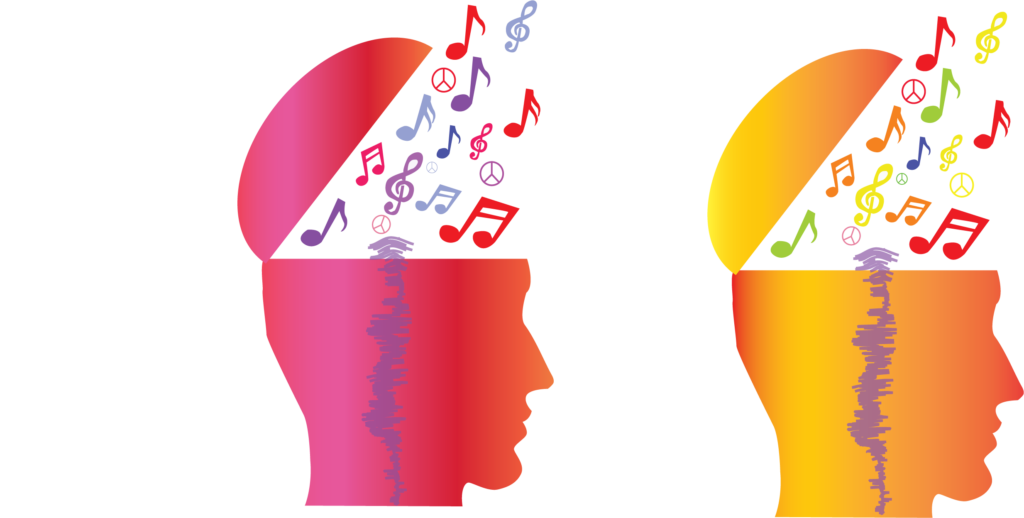
Junior Lily Ezersky takes a deep breath as she prepares her voice to deliver calming melodies to cancer patients at the Sylvester Comprehensive Cancer Center. Ezersky’s singing is accompanied by the strums of her acoustic guitar as she guides patients’ breathing in a meditation exercise.
At the Frost School of Music, this musical performance is as integral to patient treatment as traditional medicine. Here, music therapy merges melodies into medicine to relieve stress among patients.
“Music therapy is the evidence-based use of music as a therapeutic mechanism of alleviating stress and elevating quality of life,” music therapy program director Dr. Teresa Lesiuk said. “It’s used in several different dimensions such as emotional and cognitive areas, sensory motor areas and overall in different health settings.”
The music therapy major is offered at the Frost School of Music under a Bachelor of Music. Students in the program get a unique educational experience characterized by accomplished professors, compelling courses, hands-on clinical opportunities and a bonus minor in psychology.
“When trying to decide which college I would attend, Frost spoke to me the most,” Ezersky, a music therapy major, said. “I was drawn to its emphasis on scientific rationale, the music rationale and how much we prioritize the brain. I think it’s important to actually understand what we are doing.”
Frost’s program prepares music therapy students to work in any one of these areas. Besides the typical undergraduate music courses and major-specific behavioral courses, the music therapy major boasts a comprehensive clinical practice program.
“Starting sophomore spring semester, and every semester after, students are placed in different clinical settings,” Dr. Lesiuk said.
The options for clinical placement are extensive, a testament to the multiple connections and partnerships that Frost has established since its music therapy program began in 1969. Clinical sites include Nicklaus Children’s Hospital, Sylvester Comprehensive Cancer Center and the Miller School of Medicine.
In addition to these partnerships, the program’s approach to therapy education has evolved since its founding.
Yani Trevin Rubio, a double ‘Cane who received her Bachelor of Music and Master of Music degrees from UM — has witnessed this transition firsthand.
“The philosophy, structure and actual curriculum have changed a bit since I was a student,” Rubio said. “When I started in this program, there was a more humanistic emphasis and focus on person-centered therapy. Today, it’s more your neurological music therapy (NMT) based approach.”
As an often misunderstood yet rapidly expanding field, UM’s program ensures that its students are at the forefront of music therapy’s evolution in the world.
“There is a misconception that this field is simply singing to people to make them feel better,” Rubio said. “We as professionals have to understand how the body works, how muscles work and what parts of the brain are affected by certain techniques and protocols. That is how we decide what elements of music are incorporated into our treatment.”
The amount of research areas within music therapy careers are extensive.
“Some of our students do research as well,” Dr. Lesiuk said. “I have a student right now who’s going to be recruiting people with lung cancer and other breathing disorders for their research project.”
Lesiuk has worked with the Parkinson’s community in collaboration with the Miller School of Medicine. Today, she investigates how brain activity in an individual with mild cognitive impairment or early onset Alzheimer’s is affected by their favorite music.
“At Frost, we analyze how the brain functions, and in turn, start to understand how utilizing music can aid a person’s recovery,” Ezersky said.
Music therapists must have an in-depth knowledge of different medical conditions in order to determine the best care for their patients.
“They have to know the condition their client has very well because in order to provide the most effective treatment in your therapeutic music experiences, your interventions, your activities that you’re working with, you need to understand the diagnosis,” Rubio said.
Understanding the diagnosis is essential, but it comes with its challenges. Music therapists have a responsibility to help suffering individuals, which often takes an emotional toll. Frost students are taught to turn those feelings into fuel for their work.
“Something I try to teach my students is don’t see the disability, but see the ability and the possibility,” Rubio said.
The education that UM music therapy students receive prepares them for careers where they can live out their passions while simultaneously making a difference in the lives of their clients and communities.
“This school has helped me gain so much experience in the field,” Ezersky said. “I’m confident in the ways I’m being prepared here both musically and clinically. I’m sure I’ll enter as a well-rounded candidate into the internship application process.”
As the music therapy field grows, Frost’s program is prepared to meet that demand by shaping the next generations of practitioners into well-rounded professionals equipped with the necessary skills to offer the highest quality care.
“As music therapists we are helping people heal, we are helping people recover and we are helping people to strategize so that their lives are easier,” Ezersky said. “Music, as a universal language, facilitates that.”







